
Tribune (228)
Arab League Summit with Russian participation not symbolic
Автор Shehab Al Makahleh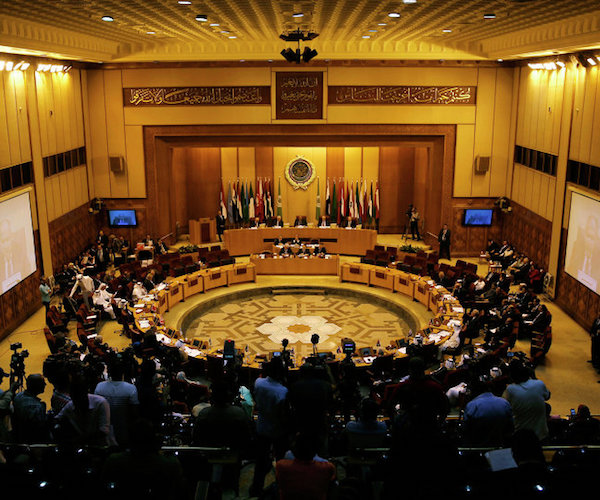 The 28th Arab League Summit in Jordan which will be held in the Dead Sea area on March 29th, 2017 with the participation of Arab leaders, United National Secretary General Antonio Guterres and representatives from Russia, the USA, the EU and the Africa Union would be the last chance for Arab countries before getting into further chaos. This summit is the second to be held in Jordan since 2000, with expectation to push the Arab joint work forward at all levels, presenting a glimmer of hope to tackle most of today’s challenges facing the Middle East, offering opportunities to restart an Arab strategy regarding critical and significant matters as the future of the Arab League and Arab countries is at stake.
The 28th Arab League Summit in Jordan which will be held in the Dead Sea area on March 29th, 2017 with the participation of Arab leaders, United National Secretary General Antonio Guterres and representatives from Russia, the USA, the EU and the Africa Union would be the last chance for Arab countries before getting into further chaos. This summit is the second to be held in Jordan since 2000, with expectation to push the Arab joint work forward at all levels, presenting a glimmer of hope to tackle most of today’s challenges facing the Middle East, offering opportunities to restart an Arab strategy regarding critical and significant matters as the future of the Arab League and Arab countries is at stake.
Amidst expectations of another wave of Arab Spring amongst the youth in the Arab world, especially after some political, economic and social reforms have yield to zero changes in people’s lives, many started to rethink of stage sit-ins to ask for further consideration of citizens demands in many Arab countries including the oil rich countries which have suffered from a decline in oil and gas prices and huge losses of return accordingly
The summit is a wakeup call to all Arabs that unless constructive measures are adopted by the leaders to solve the stumbling blocks in the Arab cooperation and coordination path things would aggravate as the youth will be losing faith in their governments.
The summit which is presided over by his Majesty King Abdullah II is very important for many in terms of its time and place. Time is critical as the whole Arab nation is passing through hardships whether politically or economically. The venue of the summit in the Dead Sea resorts will give the Israelis that Arabs are stuck to their Peace Initiative for a comprehensive and sustainable peace between Arabs and Israelis based on a two-state solution.
It is said that if the Syrian president Bashar Al Assad is not attending the summit, a representative will be attending and this could be from another country who Al Assad entrusts. What confirms this is the statement issued March 19th by the Jordanian foreign ministry that Syria will not be attending to Arab League Summit in Amman in compliance with Arab League resolutions.
This summit is the most important in the life span of the Arab League at all as it either solves the pending issues, lead to rapprochement and end up rift among Arabs themselves to counter terrorism and the looming political and economic threats or many youngsters will consider joining radical and terrorism factions against governments.
The summit, according to internal sources, would send a message to the international community that there is a dire need to solve regional issues through a unified Arab stand that help narrow the gaps and rifts among Arab countries.
On the agenda so far are the conflicts in Libya, Yemen, Syria and Iraq as well as the Palestinian cause. The visits by two Arab leaders to Washington in January and in March and their outcomes will be also on the table to give Arab leaders an idea how the new American administration is thinking and how the Arab leaders should deal with US President Donald Trump.
Russian participation in the Summit not symbolic
It is said that the Russian participation in the Arab League Summit will not be symbolic but rather it will be very effective due to the Russian key role in the war against terrorism in the Middle East which started with Russian military intervention in Syria.
Russian participation is viewed by some analysts as very important as it will be representing Syria as well expressing their views and perspectives with regard to means to counter extremism and terrorism at the international level. Some analysts said that Russia, Egypt and Jordan strived to invite the Syrian president to attend the summit and to reconcile both Al Assad and Saudi King Salman bin Abdul Aziz. Kuwait and the UAE like to see Syria back to the Arab League once again to give a boost to the joint Arab effort at the international arenas and to open a new page in the inter-Arab relations for the betterment of the Arab nation.
The summit will stress the need for solving the Arab-Israeli conflict, condemning the flagrant Israeli arrogance and disrespect of international legitimacy based on the two-state solution. The summit which Jordan eyes is one that renders to turn it into a platform to launch “institutional and effective pan-Arab action”. Jordan pins high hopes that it will be able to achieve this goal and that Arab states would have the will to make a difference to the status quo and the hard conditions the whole region is undergoing through collective understanding and cooperation to remove all barriers that would hinder the solution of Arab differences. The kingdom is giving due momentum to the issue of peace between Palestinians and Israelis which is considered as the main reason for the deteriorating economic, military and political conditions in many Arab states.
Shehab al-Makahleh is a co-founder of Geostrategic Media, senior political and economic analyst and senior media adviser, IMESClub member
Russia’s grave mistake of getting bogged down in sectarian mess
Автор Мария Дубовикова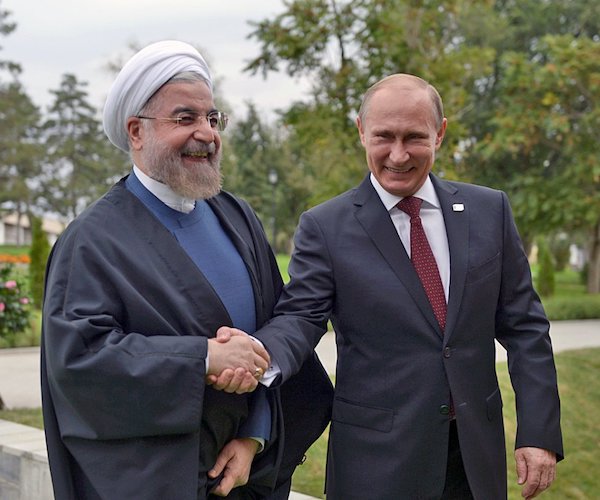 Russia’s foreign policy in the Middle East in recent decades was based on a harmonious approach that helped maintain good ties with all the players in the region without getting involved in political and sectarian wrangles.Russia’s involvement in Syria made this balance very difficult to maintain, since the Syrian conflict showed the sectarian and geopolitical fault lines of the regional powers.A main reason for the skewed balance now is Iran’s interference in Iraq and its multidimensional support for the Damascus regime, also given through groupings such as Hezbollah or other Shiite militias originating from Afghanistan and Pakistan.
Russia’s foreign policy in the Middle East in recent decades was based on a harmonious approach that helped maintain good ties with all the players in the region without getting involved in political and sectarian wrangles.Russia’s involvement in Syria made this balance very difficult to maintain, since the Syrian conflict showed the sectarian and geopolitical fault lines of the regional powers.A main reason for the skewed balance now is Iran’s interference in Iraq and its multidimensional support for the Damascus regime, also given through groupings such as Hezbollah or other Shiite militias originating from Afghanistan and Pakistan.
The Iranian involvement becomes more alarming as the conflict progresses. Tehran’s involvement in Syria and Iraq is clearly not limited to the “noble” causes of fighting terrorists, helping Syrian minorities or supporting and defending the “democratically elected president” against “terrorists.”Iran has always had far-reaching plans, primarily to counter major Sunni countries in the Gulf, chiefly Saudi Arabia, and change the regional balance of power.Iran is also pursuing its goal of exporting the revolution, which means, according to Hamid Reza Moghaddam Far, Islamic Revolutionary Guard Corps (IRGC) deputy commander of cultural affairs, “not sending advocates and preachers to other countries, but rather exporting the ideology.”This dubious export will go well beyond the Mediterranean.This ideology is brought in Iraq and Syria by gangs like Afghan Fatemiyoun Division, a Shiite militia fighting in Syria on the side of Assad regime.According to Tasnim News Agency, this division will stay involved in Syria for as long as Islam, read, in this case, Iran’s geopolitical ambitions, does not know borders; it “will always stand by Khomeini’s divine goals.”Iran is using Shiite Muslims as an instrument in its dirty game of expanding its influence and destabilizing Sunni neighbors.Saudi Arabia and its regional allies do not have any illusions about the troubles the Iranian expansion will bring them.Thus, by tragic coincidence, Syria has become a battlefield of rising sectarian regional tensions.The attempts to ease this sectarian conflict and careful messages of peace and detente coming from the western side of the Gulf are unheard, muffled by a roar of accusations coming from the Gulf’s eastern side.
It is not that Russia cannot cope with having Iran as a rival, particularly taking into account the latter’s difficulties on the global stage. By aligning with Tehran, Moscow seems to be on the wrong side of history.
Maria Dubovikova
Despite declarations of a balanced policy that keeps it friendly with everyone and does not allow it to build alliances, Russia is actually failing to maintain this policy in Syria, even despite its will, because it is being squeezed between the players there. The success of the Astana talks and the relative success of the new Geneva round only strengthened the Iranian position, especially after Iran was recently recognized as a guarantor of the cease-fire in Syria, leaving out GCC countries. True, the GCC countries were invited to take part in talks, but Saudi Arabia cannot accept the role of spectator and the other GCC countries will not get involved without this key Gulf power. UN Syria envoy Staffan de Mistura has been urging all foreign players in Syria to not turn the Syrian sides into pawns of their own game. Deputy Crown Prince Mohammed bin Salman’s visit to Washington signals the re-emergence of Saudi-US partnership. Moreover, it seems that in Syria, the two major players will try to overplay the until now successful trio. But is this a reasonable step? Due to certain circumstances, Russia appears to be on the same side with Iran in the Syrian game, even though it tries to stay relatively “impartial.” There is significant cooperation between Russia and Iran in many areas, boosted after Russia’s spat with Europe. Then, after all, Iran is a neighbor. It is also a dangerous rival and an absolutely unreliable friend. And between the two, Russia is choosing “an unreliable friend.” Yet it is not that Russia could not cope with having Iran as a rival, particularly taking into account the latter’s difficulties on the global stage.
Russia seems to be on the wrong side of history in this case, but it has few choices under the current shaky circumstances. The success of Astana and Geneva talks is greatly dependent on the relative friendship between Moscow and Tehran. And for Russia, it is a matter of honor to have the Syrian conflict solved through a political process. What should be clearly understood about the Russia-Iran cooperation is that there is no illusions about Iran in Moscow. Iran wishes to cooperate with the West more than with anybody else. Cooperation with Russia is not based on common values and long-term interests. There is a full pack of difficult to resolve issues between them. Iran poses an imminent threat to Russia’s interests. In Iran, there is a high level of discontent with Russia, especially its policy in Syria (that seems insufficient in Tehran’s eyes) and in all its policy toward Iran (which seems to Tehran not friendly enough: The nuclear plant is not build as fast as it was promised, the delivery of the notorious S-300s had been postponed for a long time, etc.) Currently, Russia’s answer to the question asked by Saudi Arabia — “Are you with us or with Iran?” — seems to be “with Iran.”
And expecting such an answer, the GCC is reinforcing the US presence and alliance in the region to counter Iran’s and its allies’ imminent threat. For Russia, as always, cooperation with Iran does not exclude an in-depth partnership with GCC, but Russia is interested in cooperating with the Gulf. With some GCC countries, like Qatar and Bahrain, relations are progressing well, while with other, they seem stuck or hostile, adding to the climate of mistrust. Russia is clearly making a grave mistake by getting bogged down deep in the sectarian mess and losing its impartial status, but it can hardly avoid it. But certain countries are making an even bigger mistake by expecting to overplay the existing trio, as deepening the geopolitical misunderstanding over Syria will plunge the region in an endless mess that costs dearly the civil population and the global stability. A great role Saudi Arabia could play, as a leading and powerful GCC state, would be to not urge the US to oppose the Russia-Turkey tandem, with an adjunct Iran, but to make Russia, Turkey and the US work together on resolving serious issues in Syria and Iraq, as well as to fight terrorism and minimize Iranian influence and role by actively taking part in all activities itself. That would be a worthy gambit, hardly expected, but benefiting the whole world.
Iran does not have enough funds to increase oil production
Автор Administrator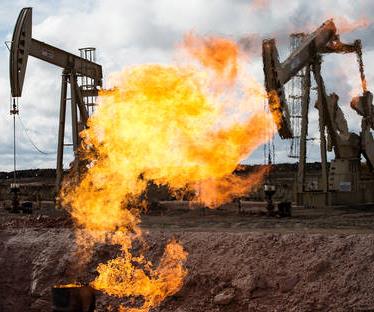 After the visit of Russia’s Minister of Energy to Tehran, Iran promised to freeze its oil production at 3.8 million barrels per day if OPEC prolongs its oil cuts agreement at the group’s meeting in April. An expert says that Iran does not have enough money to increase oil production, and is trying to get political dividends out of the freeze.
After the visit of Russia’s Minister of Energy to Tehran, Iran promised to freeze its oil production at 3.8 million barrels per day if OPEC prolongs its oil cuts agreement at the group’s meeting in April. An expert says that Iran does not have enough money to increase oil production, and is trying to get political dividends out of the freeze.
Iran’s Minister of Petroleum Bijan Namdar Zangeneh said on Mar. 14 that his country was ready to freeze oil production at 3.8 million barrels per day in case OPEC countries agree to extend the agreement to cut oil production. The next OPEC meeting is expected to take place in April in Doha.
The announcement from Zanganeh came when Russian Minister of Energy Alexander Novak was in Tehran. A day earlier, on Mar. 13, he met Iranian Communications and Information Technology Minister Mahmoud Vaezi in Moscow to discuss Russia-Iran economic cooperation. The two co-chaired the meeting of the Iran-Russia Joint Economic Committee.
OPEC oil freeze
“Iran has reached its maximum potential for oil production,” Chatham House Associate Nikolay Kozhanov told RBTH. He added that Tehran would not be able to increase production without a significant amount of investment.
The investments are needed not only to increase, production, but even to maintain the current level, as “Iran’s oil industry is not in the best shape,” Kozhanov says.
Iran’s willingness for a freeze means that Tehran is trying to get political dividends from the situation, the expert adds.
Kozhanov does not see Russia having a major influence in Iran’s decision-making process when it comes to production. He believes that Russia can play the role of a messenger transmitting messages from other Middle Eastern countries to Iran.
Oil-for-goods
One of the issues Novak raised in Tehran was the signing of a new agreement based on the ‘oil-for-goods’ deal of 2014.
According to the 2014 memorandum, Russia was supposed to exchange goods and investments for 100,000 barrels of Iranian oil per day, but this was not implemented.
“The situation has drastically changed since the removal of sanctions, and Iran is a player in the market now,” Novak said. “Nevertheless, the memorandum concerning the ‘oil-for-goods’ deal, which runs for 5 years, remains in force.
The total volume of goods that Russia can deliver to Iran is estimated at $45 billion annually, Sputnik cited Russian Trade representative in Iran Andrei Lugansky as saying.
A new agreement is being discussed and may be signed in March. The deal that was signed in 2014 did not work for a number of reasons, Kozhanov told RBTH.
According to him, the 2014 deal, first of all, was a non-binding memorandum “born as a result of anti-Iranian sanctions” and it “was not well elaborated”.
“Iran then had limited opportunities to sell oil abroad, and an attempt to establish this trade of oil through Russia was one of the driving motives.”
Now the "Iranian companies are already involved in the trade of oil,” Kozhanov adds. He says there is now “more interest in the arrangement from the Russian side.”
Article from RBTH by
Jordan attempts to transform challenges into opportunities
Автор Shehab Al Makahleh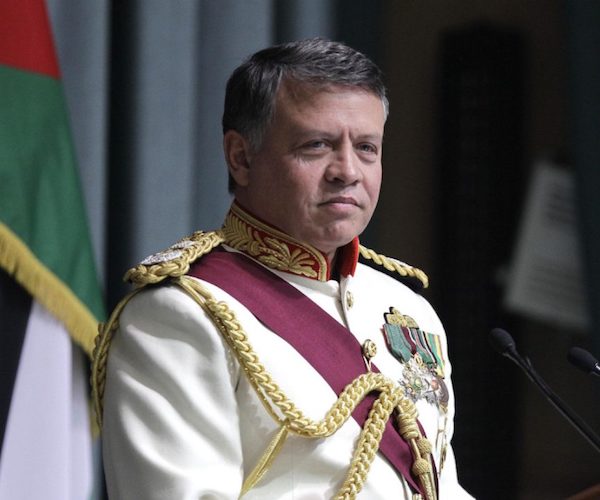 Jordan’s King Abdullah II ascended to the throne after King Hussein’s passing in February 1999. Ever since, he has ruled over a relatively stable country despite challenges and hardships ranging from terrorism and extremism to economic problems. Benefitting from its strategic location in the Middle East, Jordan is a model of tranquility and security as King Abdullah II usually says. The Hashemite Kingdom is gearing towards becoming an effective regional player, and the Arab country has worked hard to turn challenges into opportunities.
Jordan’s King Abdullah II ascended to the throne after King Hussein’s passing in February 1999. Ever since, he has ruled over a relatively stable country despite challenges and hardships ranging from terrorism and extremism to economic problems. Benefitting from its strategic location in the Middle East, Jordan is a model of tranquility and security as King Abdullah II usually says. The Hashemite Kingdom is gearing towards becoming an effective regional player, and the Arab country has worked hard to turn challenges into opportunities.
For the past 18 years, King Abdullah II has managed to fend off foreign threats and secure key alliances to protect the kingdom’s political and economic interests. Given Jordan’s location in the middle of a turbulent region and as a resource-poor country, the Hashemite Kingdom has long relied on foreign assistance, especially from Western and Arab Gulf states. The late King Hussein established very well-trained security and military forces that helped keep Jordan resilient despite hardships and pressures. The king’s meeting with US President Donald Trump in early February underscored Washington’s view of Jordan as a pivotal player in the Middle East and the US dependence on Amman for solutions to pending regional issues.
King Abdullah II is presently building on the national ethos of the Jordanian people to develop their country as a model for others to follow in terms of pluralism, cohesion, modernity, and moderation. To be sure, Jordanians of all backgrounds have built the Hashemite Kingdom, and this fabric enhances the unity of the people and their respect for fellow citizens regardless of religion or roots.
Since inheriting the throne in 1999, King Abdullah II has taken an oath to develop the Hashemite Kingdom and make it prosperous through balanced economic plans and socio-economic initiatives, launching private and public partnerships to help boost the country’s growth. The financial crisis of 2008/2009 hit Jordan hard and forced some of these ambitious plans to go on the backburner. In 2011, the Arab Spring uprisings which erupted across the Middle East were a wake-up call for all Arab leaders to implement political reforms and empower their citizens. The king established the foundation for reform that Jordanians sought with constitutional changes to enhance civil rights, separation of powers, and new parameters for the monarch’s responsibilities. The fruits of the political reform after 2011 were the formation of a constitutional court and an independent election committee, where the king plays the role of guarantor of the political reform.
Jordan’s young generation has high expectations, seeking economic and political reforms that can create jobs for recent university graduates. Although the country has been spared the chaotic unrest of some of its neighbors in recent years, the pressures of catering to the demands of a population that have endured the effects of belt-tightening economic reforms are real and continue to pose challenges for the government in Amman. Last month, protests took place across several Jordanian cities/towns (Karak, Tafliah, Salt, and Madaba) as a response to recently enacted austerity measures, including hiked taxes on food items and certain services. Many expressed anger at the “government of taxes” while calling for Prime Minister Hani Mulki’s resignation. Like other Middle Eastern countries, Jordan has a particularly high youth unemployment rate, which is approximately 29 percent, according to World Bank estimates. Last summer clashes broke out between protestors and police in Dhiban district, one of Jordan’s poorest areas. The protestors were demanding improved economic conditions and employment.
Within this context, officials in Amman are focused on addressing the Jordanian people’s concerns which include not only unemployment, but also water, electricity and living conditions. The King through his plans and policies is giving due support to civil society to become increasingly involved in Jordan’s development, helping the monarch save his country the calamities and scourges of the Arab Spring’s destabilizing fallout.
The Hashemite Kingdom receives ample support from many countries outside the Middle East, including the US, European Union, China, Russia, South Korea, and Japan. This international support has been crucial as Jordan grapples with the challenges stemming from economic hardships exacerbated by the influx of hundreds of thousands of refugees fleeing the carnage in Syria. Indeed, the crisis in Syria has placed Jordan under heavy pressure, challenging Amman to protect the kingdom from future destabilizing spillover effects. Of course, the ongoing conflict in Israel/Palestine and Iraq’s tumultuous and violent state of affairs continue to threaten Jordan’s interests in terms of promoting a two-state solution in line with the Arab Peace Initiative, aborting terrorism, and countering extremism.
Without peaceful resolution to the Syrian crisis, which is unfortunately difficult to imagine, the Hashemite Kingdom will continue to face daunting challenges. In addition to the influx of refugees, the country’s economy is under heavy pressure from the threat of Salafist-jihadist terrorists from Islamic State and other extremist factions in the Levant seeking new targets in the Middle East as the Islamic State loses its grip on Raqqa and Mosul. In the face of such economic and security threats, Jordan continues to want to present itself as an example of a thriving Arab state that embraces pluralism, pragmatism, tolerance, and moderation in a region beset by extremism and tumult.
With King Abdullah II hosting the Arab League summit in Jordan this month—the first in Amman since 2001—the Hashemite Kingdom will attempt to promote Arab consensus and unity on a host of issues. As proxy wars and inter-Arab rivalries have polarized the Middle East, such divisions have prevented the Arab League from finding viable solutions to grave regional crises. Although the positive effects of Arab League summits are usually minimal and expectations for this month’s meeting in Amman are justifiably low, the challenge of promoting realistic ideas for solving the problems facing millions of Arabs is one that Jordan’s ruler has fully accepted.
Shehab al-Makahleh (Sam Mak) is a senior advisor at Gulf State Analytics with experience as a political advisor in the United Arab Emirates, member of IMESClub. Photo: King Abdullah II
Initially published in LabeLog: http://lobelog.com/jordan-attempts-to-transform-challenges-into-opportunities/
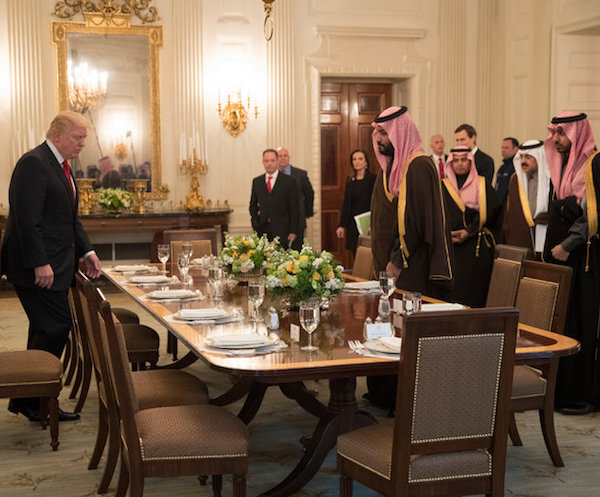 While Saudi Arabia’s King Salman was on the fourth leg of his three-week Asia tour, his son, Deputy Crown Prince Mohammed bin Salman (MbS), became the first Saudi royal to visit the White House during the administration of US President Donald J. Trump. With the king wrapping up his state visit in Japan before going to China, and MbS in Washington, the timing sent a message that Riyadh is seeking to work with allies, friends, and partners across the world. These visits occurred at a time when the kingdom is pursuing an economic transformation in line with Vision 2030, a blueprint for improving the future of Saudi Arabia. Riyadh is also facing a host of financial challenges stemming from cheap oil as well as ongoing security crises near and within its borders.
While Saudi Arabia’s King Salman was on the fourth leg of his three-week Asia tour, his son, Deputy Crown Prince Mohammed bin Salman (MbS), became the first Saudi royal to visit the White House during the administration of US President Donald J. Trump. With the king wrapping up his state visit in Japan before going to China, and MbS in Washington, the timing sent a message that Riyadh is seeking to work with allies, friends, and partners across the world. These visits occurred at a time when the kingdom is pursuing an economic transformation in line with Vision 2030, a blueprint for improving the future of Saudi Arabia. Riyadh is also facing a host of financial challenges stemming from cheap oil as well as ongoing security crises near and within its borders.
MbS’ visit to Washington and his meeting with Trump on March 14 provided clear signals that the United States considers Saudi Arabia a major ally and MbS a credible partner. Trump and MbS’ meeting may suggest that the White House views the thirty-one-year-old deputy crown prince as the next king of Saudi Arabia, a future leader to depend on in the Middle East, and a representative of the Gulf Cooperation Council (GCC). Yet the meetings in Washington may also leave the impression that the United States is trying to balance its relations with both MbS and Saudi Crown Prince Mohammad bin Nayef (MbN), suggested by Central Intelligence Agency (CIA) Director Mike Pompeo’s visit to Riyadh in February where he met with MbN and awarded him with a medal for his counterterrorism efforts.
MbS, who is charge of all Saudi economic portfolios and is a businessman who owns many companies, seeks to establish a sovereign wealth fund (SWF), a pillar of Vision 2030. This could possibly be the largest SWF in the world, worth $2 trillion, depending on the sale of 5 percent of Saudi oil company Aramco’s shares.
The reception MbS received in Washington sent a signal that the Trump administration has given the deputy crown prince carte blanche to discuss all economic, political, military, and security portfolios as he has, arguably, become the kingdom’s first decision maker.
At the top of the agenda in Washington, Trump and MbS discussed countering “Iran’s destabilizing regional activities,” and exploring “steps across a broad range of political, military, security, economic, cultural, and social dimensions to further strengthen” US-Saudi strategic relations, according to a White House statement.
Trump and MbS also discussed former US President Barak Obama’s decision to suspend the sale of precision-guided munitions to Riyadh in response to high civilian casualties caused by the Saudi military intervention in Yemen. US officials pointed out that Trump was considering ending the ban and approving the sale of such munitions, and all that is left is a White House approval. It should be noted that the kingdom’s military spending, which surpassed $87 billion last year, has almost doubled since 2006.
Saudi investments in the United States were also discussed on the Washington visit. Saudi Oil Minister Khalef Al Faleh, who is close to MbS, said that the kingdom would invest in US infrastructure projects, including fossil fuel. These investments could help to grow the economy and create new job opportunities, which Trump promised during his election campaign.
The visits of both the king and his son to Asia and the United States, respectively, aim to strengthen the kingdom’s economic, military, and political alliances with major world players. This could set the kingdom’s economy on a positive trajectory. The Saudi economy suffered a setback because of plummeting oil prices that have left a huge budget deficit in the kingdom.
An outstanding issue, which will remain a source of tension in Washington-Riyadh relations, is the controversial Justice Against Sponsors of Terrorism Act (JASTA). The US law, which passed last year despite Obama’s veto, implies that the Saudi government was partially culpable for the September 11, 2001, terrorist attacks on the United States and permits victims’ family members to sue the kingdom in US courts. Trump, on the campaign trail, supported JASTA. It is unclear how his administration will address the legislation and future problems it will undoubtedly create in US-Saudi ties.
MbS’ trip to the White House was about resetting US-Saudi relations in the wake of the Obama presidency, which one of the crown prince’s senior advisers described as a “period of difference of opinion” between Washington and Riyadh. The Saudi leadership is cautiously optimistic that the Trump administration will reverse what it sees as the Obama administration’s flawed policies and strategies vis-à-vis Iran, which, either intentionally or unintentionally, empowered Tehran to expand and consolidate its influence across Middle East. MbS’ visit to Washington signaled that Riyadh is determined to foster close ties with the Trump administration.
Shehab al-Makahleh (Sam Mak) is a senior advisor at Gulf State Analytics with experience as a political advisor in the United Arab Emirates.
Initially published by Atlantic Council: http://www.atlanticcouncil.org/blogs/new-atlanticist/a-saudi-royal-visits-trump
The significance of the Trump-Mohammed bin Salman meeting
Автор Faisal Abbas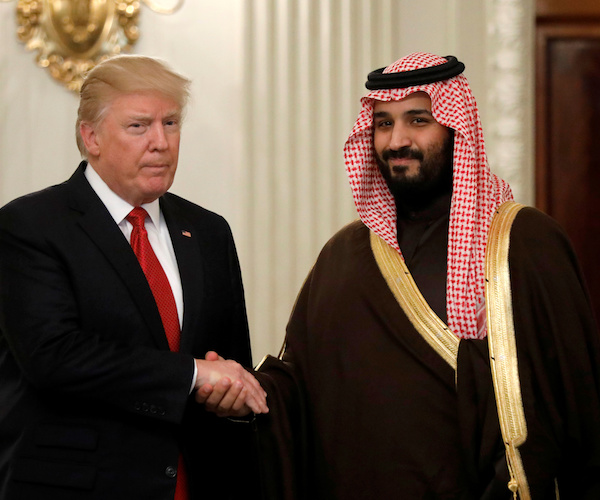 “Patience is a virtue,” according to an ancient piece of wisdom. There is no doubt that for the eight long years of Barack Obama’s presidency, Riyadh’s patience was tested to the max by an administration that seemed — intentionally or not — adamant on punishing allies and rewarding foes.
“Patience is a virtue,” according to an ancient piece of wisdom. There is no doubt that for the eight long years of Barack Obama’s presidency, Riyadh’s patience was tested to the max by an administration that seemed — intentionally or not — adamant on punishing allies and rewarding foes.
Yet the Saudis persisted, and like a true and solid ally, they took it on the chin. They refused to follow the Iranian model of exploiting such situations to their benefit by advocating anti-Americanism, and kept on giving honest and valuable advice to Washington.
Toward the end of Obama’s tenure last year, America failed to respond adequately when the Houthis attacked a US Navy ship in Bab Al-Mandab no less than three times. At that point, it became clear that the “Obama Doctrine” jeopardized the position of moderate US allies in the region, empowered rogue states such as Iran, allowed the Syrian regime to continue murdering its own people, and shattered the image of the US as a superpower that is able to maintain order and intervene for the sake of peace and stability worldwide.
At that point, it seemed Riyadh and Washington could not have been any further apart regarding their perspectives on regional affairs. Yet Obama was replaced by a president who also could not have been further apart from him.
The historic Saudi-US relations are back on track. We should now expect a serious joint effort to restore stability to our region.
Faisal J. Abbas
Relations back on track
It was ironic to see how Obama went from hero to zero over his two terms. One cannot help but remember all the optimism that accompanied his rise to power, particularly in the Arab world after his now-famous Cairo speech. Yet given that all his talk of a “new beginning” nearly brought an end to the region as we know it, most Arabs now hopefully know that actions speak louder than words.
President Donald Trump may be criticized for his rhetoric, and he may not be all hugs and kisses like his predecessor was. But when it comes to the stuff that really matters to us — his policies — one cannot but give them two thumbs up.
If anything was proven during the recent meeting between Trump and Saudi Deputy Crown Prince Mohammed bin Salman — the first Arab/Muslim official to meet him at the White House — it is that historic Saudi-US relations are back on track. As such, we should now expect a serious joint effort to restore stability to our region.
I say this not only because of the change that has occurred in Washington, but because of the change that has occurred in Saudi Arabia over the past two years. Today there is a young, dynamic, proactive leadership in Riyadh that the new US administration can work with.
The new Saudi spirit, embodied in the deputy crown prince, is one that means business, and has made reform and progression its main mandate (compared to Tehran, which has only used the money from the nuclear deal to further spread chaos and terror in the region).
Riyadh has also established, and is home to, the Islamic military alliance to combat Daesh, something the Trump administration has been clear it intends to pursue seriously. The White House understands the importance of having Saudi Arabia, as the land of the Two Holy Mosques, on its side in such delicate matters.
It is easy for a country such as Iran — which harbors and supports Shiite militias and Al-Qaeda leaders — to say placing additional security measures against its citizens is an attack on all Muslims. But this is simply not true. Each country has the right to secure its borders, especially when it comes to countries that do not share biometric or intelligence data with it.
Saudi Arabia can play a vital role in both offering correct advice and weighing in when it comes to resolving the Israeli-Palestinian conflict. This will prove crucial for Trump if he intends to fulfill what he said about brokering a historic deal to end this longstanding conflict.
Riyadh can also revert back to having a reliable ally with significant influence to help end the conflict in Yemen and push through a political solution that can restore a legitimate government, end the misery of the Yemeni people, and launch a massive reconstruction campaign that will bring back peace and prosperity.
• Faisal J. Abbas is the editor in chief of Arab News. He can be reached on Twitter @FaisalJAbbas : http://www.arabnews.com/node/1068696
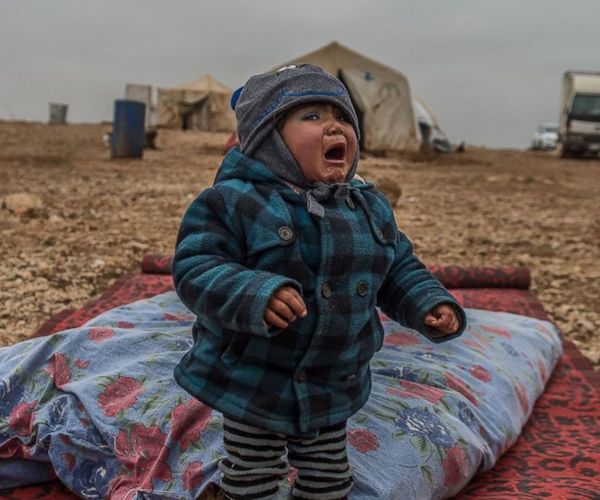 Syria’s humanitarian catastrophe is worsening daily despite the cease-fire and somewhat successful direct negotiations in Astana and Geneva. There is still fighting in some areas, making it difficult for humanitarian organizations such as the Red Cross and Red Crescent to reach civilians in those areas.
Syria’s humanitarian catastrophe is worsening daily despite the cease-fire and somewhat successful direct negotiations in Astana and Geneva. There is still fighting in some areas, making it difficult for humanitarian organizations such as the Red Cross and Red Crescent to reach civilians in those areas.
The government in most cases is unable to restore normality in “liberated” areas, or provide people there with basic needs such as electricity and water. Syrian officials are even unhappy at the burden of those areas now being completely their responsibility, with no one else to blame. Damascus’ resources are dwindling, its allies’ help is insufficient, and humanitarian aid provided by NGOs is limited compared to the scale of the tragedy.
Humanitarian organizations have limited access to areas controlled by radicals and extremist groups, not least because of the high security risks. NGOs have no access to areas controlled by Daesh, in which about 1.5 million Syrians are concentrated. The humanitarian catastrophe in Syria will deteriorate further following the operation to liberate Raqqa, as such operations have always resulted in extremely high civilian fatalities, injuries and displacement.
The humanitarian disaster is not limited to physical suffering, famine, illness or malnutrition. It has an enormous psychological impact that is practically impossible to evaluate. December saw the evacuation of east Aleppo, which lay in ruins, its people emaciated. What shocked Red Cross representatives taking part in the evacuation was that no children were crying — a sign of their internal pain at the hope, loved ones, life, home and country they have lost.
Even if the ground war ends today and true peace prevails, the war will remain in hearts and memories. Most Syrians returning home will have to restart their lives from scratch.
Maria Dubovikova
Psychological trauma is not as striking at first glance as physical wounds, but they become striking with time. Their consequences can be severe and disastrous for the whole country in the long run. Experts say rebuilding Syria will cost some $100 billion. But the human cost is immeasurable. Material things are more easily repaired than a social fabric.
Even if the ground war ends today and true peace prevails, the war will remain in hearts and memories. It will remain in its physiological consequences. Most Syrians returning home will have to restart their lives from scratch.
Many Syrians have lost contact with their relatives and have no knowledge of the whereabouts of their loved ones. People are detained by the government without prosecution, but the rebels are no saints either. People are disappearing, perishing in mass executions by Daesh, and dying in shelling and airstrikes. Many are yet to perish. These millions of personal tragedies are forming a national and global catastrophe.
There is also the near-complete destruction of infrastructure, including hospitals and schools, depriving people of basic social needs. Education may not seem so important at first glance, but the future of Syria lies in the hands of youths who are critically damaged by the conflict, and hence easily manipulated by extremist recruiters. With NGOs’ focus understandably on helping people survive, this issue is not being addressed.
Ignoring the psychological and social aspects of the humanitarian catastrophe could cost Syrian society and the whole world dearly. But there is hope because of the inherent traits of the Syrian people: Kindness, open-heartedness, generosity and hospitality. Despite their suffering and losses, they are demonstrating unprecedented resilience and love.
They help each other regardless of their political views, and are ready to share with their neighbors their last piece of bread, an example of generosity and unity amid this devastating war. Thus there is no civil war between civilians.
It is a fight for power, to realize the geopolitical ambitions of certain forces and people on both sides of the frontline, as well as their sponsors. Hopefully, Syrians’ natural warmth will be the key binding element of reconciliation and civil society, overcoming the politics that have brought nothing but war and hatred.
Initially published by Arab News: http://www.arabnews.com/node/1070051
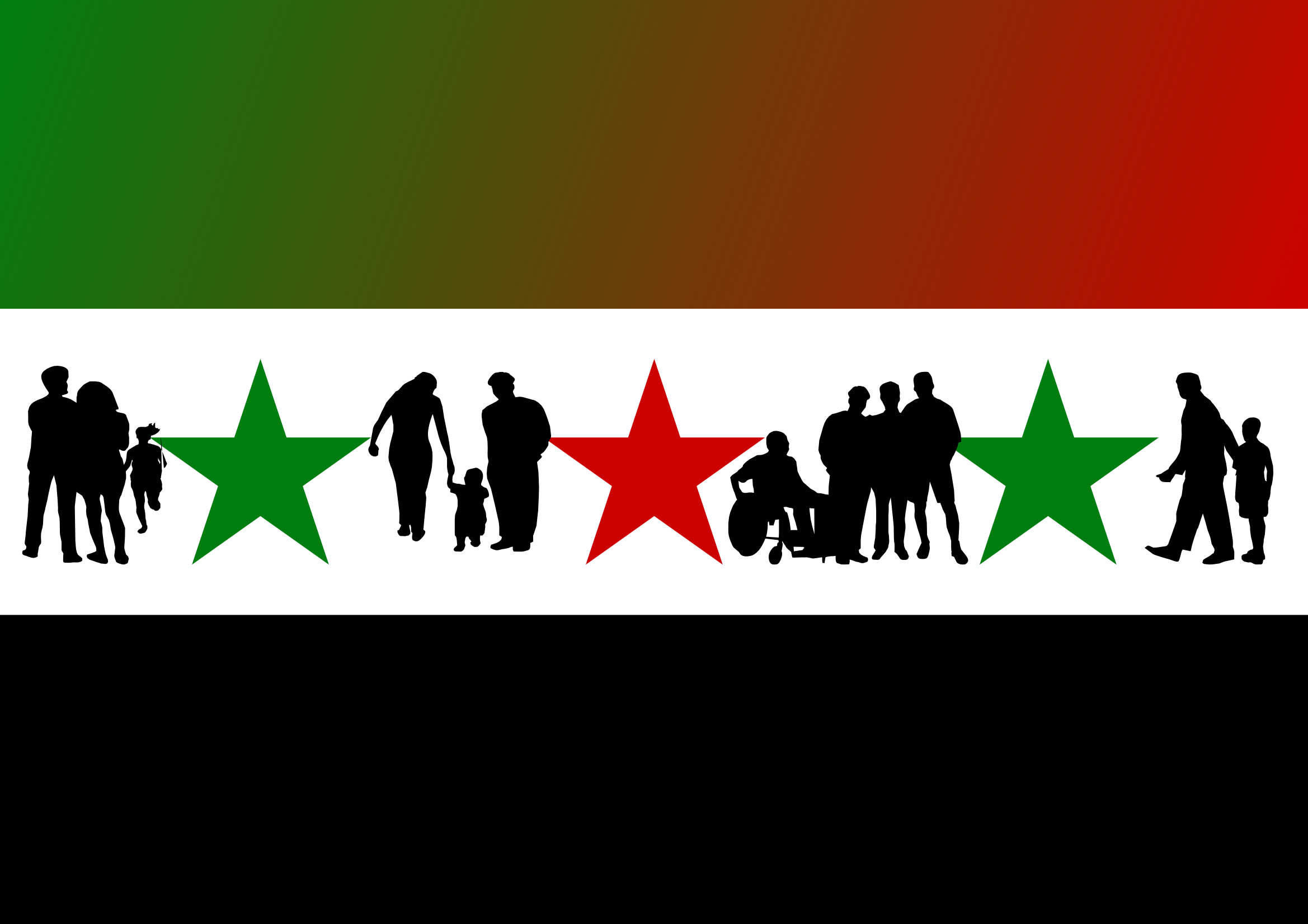 Stop war. You are all Syrians. (by Maria Dubovikova)
Stop war. You are all Syrians. (by Maria Dubovikova)
Jerusalem: Reconsidering the settler colonial analysis
Автор Walid Salem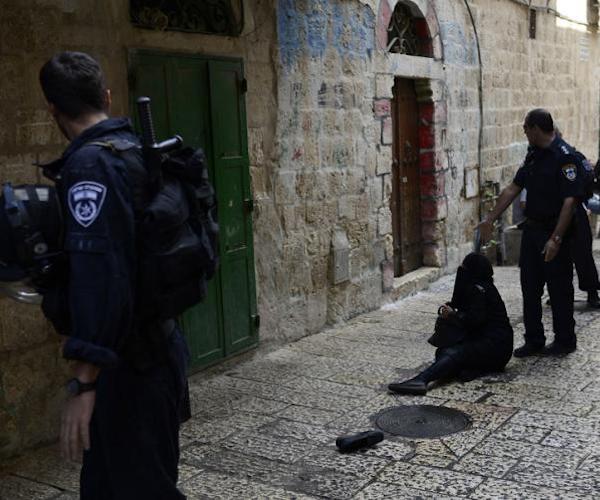 Introduction: The re-emergence of the settler colonial approach in the academic world
Introduction: The re-emergence of the settler colonial approach in the academic world
The 1940's to the 1970's was a period of decolonization and self-determination for many countries in Asia and Africa. An immense amount of academic and intellectual writings about colonialism, neo-colonialism as well as settler colonialism accompanied that process of decolonization. At the same time, the UN released several resolutions and documents condemning colonialism and seeking the immediate fulfillment of the right to self-determination for all peoples living under colonial rule. The most famous among these resolutions is the 1960 UN General Assembly resolution about decolonization.
The writings on colonialism at that time focused on military colonialism and the right of all peoples to self-determination and emancipation from colonial occupation, while neocolonialism focused on how colonialism "left through the door and came back through the window", using economic and cultural means rather than direct military control as it was the case with colonialism before.
The writings about settler colonialism focused on a type of colonialism which combines military occupation with a settler colonial component that included taking over land, space, territory and landscape, through displacement and uprooting of indigenous populations, and replacing them by another population. This created, at the expense of the dispossession of the indigenous people, a new society and state with a different type of space, landscape, language, and culture. The Palestinian academic and intellectual Fayez Sayigh was one of the pioneers of analyzing the Israeli Zionist settler colonial project, alongside Edward Said, whose book Orientalism is considered a leading work in the field. He focused on the approach of Western scholars towards the Orient who wrote about western connections to the land and the territory of the Orient while disregarding the peoples living in that territory as if they are non-existent. The contribution of the seminal writings of the Egyptian Scholars Abdel Wahab Al Masiri and Majdi Hammad should be also mentioned in this regard. Algerian, South African, and Irish writings were published during that period analyzing the settler colonial projects in these respective countries and their different fates.
Contrary to the colonial military occupation that has a clear point of beginning and end, settler colonialism is a continuous process without an end, and as the pioneer in the recent studies of settler colonialism, Patrick Wolf, put it “It is a structure rather than an event”( Wolf, 2006).
After the 1970's it was only in the beginning of the third century that the settler colonial approach came back to the academic discourse for example in presentations during the International Studies Association (ISA) conferences since 2013, and the publication of the Settler Colonial Studies online Journal by Taylor and Francisin the same year.
The significance of settler colonialism regarding Jerusalem
The quotation by Patrick Wolf above, demonstrates that the Zionists settler colonial project which started in the 19th century continues to be used against the Palestinians in the West Bank (especially in Area C that constitutes two thirds of West Bank) and East Jerusalem till today. It uses the same methods of dispossession, ethnic cleansing, and spacio-cide (as it was called by Sari Hanafi) that were used in the prior 1948 period. Therefore, the Palestinian State is limited to Gaza Strip, while the West Bank and East Jerusalem are subject to a continued Nakba with the 1948 and 1967 transfers as moments of escalation. These phenomena are continuing today, using different methods of internal and external displacement, including also the Palestinians inside Israel. They faced different internal displacements 1948 to 1967, which have continued ever since, including for example the destruction of Palestinian Bedouin villages in the Negev today.
The settler colonial approach can help to identify the common discrimination in Israeli policies against all the Palestinians regardless of whether they live inside Israel, in the 1967 occupied territories, or as refugees abroad. In addition to the commonalities, this approach can assist in finding significant characteristics for each situation or each group. This article will use the approach to further examine the situation in Jerusalem..
The settler colonial approach can help overcome gaps and discrepancies that limit the four other approaches of analysis of the situation of Jerusalem and West Bank. These four approaches are: Firstly, the inequality approach that analyzes the aspects of inequality in Jerusalem, while seeking to suggest how to overcome them, with very little focus on ending the settler colonial project in the city. This approach is adopted and applied by Israeli organizations who prepare analyses or conduct projects for more equitable relations in the city within the current framework of the existing power structure.
The Occupation Approach
The second approach considers the situation in East Jerusalem to be just an occupation, as the Palestinian Authority and the international community keep stressing, and asking for its end. Such a call according to the International law which does not accept any form of occupation, including in regard to Jerusalem, is not wrong, but misses the point that Israel is an ideologically driven state. It is even better described as state-project that considers itself to continue to be a ‘state in the making’, with its final size and borders still to be determined.
The Combination of Colonialism and Neo-colonialism Approach
The third approach regards what is taking place in East Jerusalem by Israel as a combination of colonialism and neo-colonialism (by placing Jerusalem under full Israeli economic domination in addition to the military occupation). Such an approach is partially right, but still has to be completed with the settler colonial approach. In the short run including settler colonialism will assist to analyze and follow the state driven and the state supported settler colonial project, and in the long run it will help to see how the colonial and the neocolonial approaches are practiced within the framework of a settler colonial project. Discrimination as practiced temporarily till the achievement of the full formation of the settler colonial project at the expense of the indigenous population, leads to a point of time when the colonial and the neocolonial policies will cease to exist due to the transfer of all indigenous population.
The Ethnocracy Approach
The fourth approach describes the situation in East Jerusalem to be the result of Israel being an ethnocracy rather than being a democracy. This view is based on the inclusion and exclusion of people from the Demos according to a certain ideology, which results in this case in including the Jews all around the world eligible to the citizenship in Israel, including also the Israeli Settlers who live in the Occupied Palestinian Territories and not in Israel, while depriving the Palestinians who live inside Israel of equal civil rights and excluding the Palestinians in the 1967 occupied territories from citizenship. In this sense, the ethnocratic state claims and seeks to represent its ethnic group and to promote its domination regardless if they live inside or outside its borders, while at the same time it limits or completely denies the civil rights of other ethnicities. Such an analysis led Yiftachel to suggest that Israel stopped its settler colonial project after the Oslo Accords 1993, and moved to the politics of what he called "creeping apartheid" against the Palestinians (Yiftachel, 2012).
The problem of such analysis is twofold: On the one hand it focuses mainly on the inclusion and the exclusion from the Demos, and less on the territorial issue that is very relevant to the Palestinians. On the other hand: It's conclusion that the “creeping Apartheid” became an alternative to settler colonialism cannot explain the continuous settlement expansion, which especially increased during the Post Oslo period as empirical data and research has shown.
Like the third approach, the fourth one also focuses on the means of discrimination against the equal rights of Palestinians in Jerusalem at all levels, ignoring their Palestinian identity by considering them to be as "Jordanian citizens residing permanently in Israel" till they will be transferred. This is already partially enforced by the different incidents of ethnic cleansing that took place against the Palestinian Jerusalemites since 1967. Some took the shape of external displacement and some others internal displacement, such as: the evacuation of part of East Jerusalem Palestinians and expelling them to Jordan during 1967 war; the expulsion of Al Sharaf neighborhood population of the Old City of Jerusalem to Shuafat refugee camp directly after the 1967 occupation; the deportations that followed to Jordan, and the ethnic cleansing through identity cards confiscations on the basis of the law of entry to Israel of 1952 that was practiced in East Jerusalem when it was occupied in 1967.
Main features of the Israeli settler colonial project in Jerusalem
In Jerusalem, the settler colonial project is practiced while using a set of complex intertwined procedures that include: dispossession (such as uprooting from land by land confiscation, from the house by house demolition among other different types of displacement); ethnic cleansing (by deportations and identity card confiscations and uprooting and re- concentration in other places like what is happening with the Bedouin collectives around Jerusalem). A third element is the isolation of those who continue to live in East Jerusalem by separating East Jerusalem from the West Bank and Gaza by the closure that started in the end of March 1993, and the separation of East Jerusalem communities from each other by creating Israeli Jewish settlements in between them, by discrimination when it comes to public services transforming Palestinian communities in East Jerusalem into slums of poverty and underdevelopment, and lastly the isolation is enforced by what I called "the inclusion in Israel, but without integration in it" (Salem 2006).
These politics of disposition, ethnic cleansing of part of the Palestinians in East Jerusalem, and the isolation of those who continue to live in the city, are combined with other policies such as: The de-development of East Jerusalem by separating it from Palestine and the world economies on the one hand, and ignoring the developmental needs of these communities on the other hand. The de-equalization regarding the rights of those Palestinians who still live in the city is a concept that goes beyond the term" inequality". The treatment of people in East Jerusalem is an inequality that is created by a state premeditated policy, therefore it is more a de-equalizing process. The de-development and the de-equalization are combined with a de-democratization process by dissolving the Jerusalem Palestinian municipality of 1967, and preventing the Palestinians from holding elections ever since, and by preventing the East Jerusalem Palestinians from defining themselves as Palestinians through insisting that they are " Jordanian citizens residing permanently in Israel" since Israel’s annexation of East Jerusalem on 28/6/1967. Finally, all of this is combined with the preservation of the refugee status of those Palestinian Jerusalemites who were displaced in 1948 and 1967 as part of the Palestinian refugees. When Israel allowed some of the refugees to come back to the West Bank and Gaza as part of Oslo implementation, Palestinians who are originally from Jerusalem were not allowed to come back to their city but only to the West Bank and Gaza.
These politics were followed by two other politics of replacement: One of them is the Jewdiazation of the place, space, territory, and the landscape, and the other is the Israelization process which on the one hand creates an Israeli majority in East Jerusalem, and on the other hand imposes the Israeli law on the Palestinian people and institutions in East Jerusalem.
Where to? Comparisons and Alternatives
If the settler colonial project is based on the concept and the practice of full exclusion, then it's fate depends on different internal and external factors. When there were no external impeding factors, the situation led to genocides against the indigenous population as happened in the cases of the U.S. and Australia. The opposite outcome is the merger of the settler colonial community with the indigenous population majority as happened in South Africa after 1994 due to the international boycott and sanctions against the South African apartheid system combined with the nonviolent struggle of the African National Congress led by Nelson Mandela. In a third case, the settler colonial project can end in evacuation of the settlers as in Algeria in 1962 due to the split between the settlers and the French Government, and due also to the armed struggle by the Algerian National Liberation Front.
In the case of Jerusalem and Palestine, option three seems not likely. On the one hand the settler community is a decision maker in the Israeli Government, and the Palestinians have not proven the capability to liberate Palestine by the means of armed struggle.
The history of the Israeli Palestinian conflict has shown a signs of population transfer combined with partial genocides on the way, therefore the future options seem to be the following: The first is an Israeli repetition of the forced transfer of Palestinians including and maybe starting with those who live in East Jerusalem for a third time. This is likely if the current trend in Israeli politics, that started talking openly about the transfer, will continue. If at the same time the ongoing international and Palestinian politics will continue to focus on the revival of negotiations between the two sides instead of focusing on confronting the settler colonial project and creating Palestinian facts in the ground, that will equally increase the likeliness of further displacement.
However, if alternative policies will be promoted, it might be possible to reverse the settler colonial project towards either a two state solution based on the 1967 borders or a one state solution with equal rights for all. The main strategies that might lead there are: A continuous and comprehensive, nonviolent and creative Palestinian campaign that includes actions on the ground and components of developmental and diplomatic resistance. Parallel to that, an international recognition of the State of Palestine - after 50 years of occupation and 100 years of Balfour declaration - with the political will to use all diplomatic, economic and developmental means that will ensure its implementation.
Finally, it should be noted that the Israeli settler colonial policies in East Jerusalem have been expanded to Area C in the West Bank, leading to the existence of a Jewish settler majority in the area versus the minority of Palestinians who live there. The issue of the holy places in Jerusalem was not discussed here, and the formal issue of the different types of identity cards given by Israel to Palestinians in East Jerusalem and the West Bank, but these two issues do not have great impact regarding what is common between Jerusalem and area C in connection to the expansion of the settler colonial project in both of them. Therefore, the issue of Jerusalem is more and more, though not exclusively, becoming an issue of Palestinian rights as a whole.
Russia – GCC Relations After the Signing of the JCPOA with Iran (Russian perspective)
Автор Aleksander Aksenenok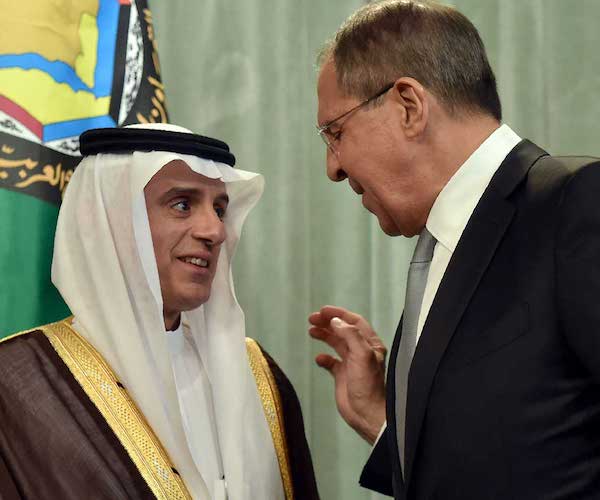 Russia's relationship with the Gulf countries is complex, and it responds to internal political transformations on both sides of the relationship, as well as to external developments in world politics.
Russia's relationship with the Gulf countries is complex, and it responds to internal political transformations on both sides of the relationship, as well as to external developments in world politics.
Despite differences over Syria and the Iranian nuclear deal, contemporary GCC-Russian relations are arguably at an apex, both in terms of shared interests and mutual understanding. Russia believes that the GCC has becom=e a real power center, exerting influence within and beyond the Middle East.
Historical Relations
GCC-Russian relations predate the inception of the Gulf bloc. The USSR was one of the first states to recognize, and establish diplomatic relations with, the Saudi Kingdom in 1932. The Soviets viewed the momentum towards integration on the Arabian Peninsula positively, especially against the backdrop of the West’s colonial policies, which were characterized by dividing and plundering the Arab states. Saudi Arabia appreciates that in those difficult initial years, Moscow provided Riyadh with critical oil products, bizarre as such an import may sound today.
Thereafter, internal issues within the USSR led to a recall of the Russian Ambassador, freezing bilateral relations for a protracted period. During the Cold War, looking through a bipolar lens, the USSR viewed the Gulf states as US satellites, in contrast to the Arab countries that had so called socialist leanings.
Russian-Saudi relations remained complicated during the 1980s due to the Soviet invasion of Afghanistan, a Muslim country. In the 1990s, mutual diplomatic representation was re-established, but was overshadowed by a pro-Muslim stance by Saudi Arabia on Chechnya and Kosovar independence, and a Russian position that emphasized territorial integrity and external non-interference. At the same time, Russia’s decision to adopt a pro-Western foreign policy meant that GCC relations were subsumed within a broader engagement of the West that emphasized Middle Eastern security.
In the early 2000s, Russia began to reformulate its relationship with its Arab partners, including the GCC states, with an emphasis on pragmatic policies, such as encouraging political dialogue and building economic ties. At the same time, the GCC states were developing and systematizing their own internal strategic priorities. Five rounds of talks between the GCC and Russian foreign ministers were held, covering topics such as international terrorism, political solutions to the crises in Iraq, Libya, Syria, and Yemen, and Russia’s ties to Iran, in light of the GCC states’ designation of Iran as the main regional threat, especially following the overthrow of Saddam Hussein. In addition to its military might, the GCC states expressed concern toward Iran’s ability to influence their Shiite communities.
The Arab Spring and Beyond
The Arab Spring has rendered drafting a Gulf security apparatus a much more complex issue, as previously key players, such as Egypt, Iraq, and Syria, have been impaired by internal strife, sometimes between groups close to Saudi Arabia or Iran. Turkey’s growing domestic and external problems have taken the lustre away from its model of Islamic democracy.
Compared to the more substantial reforms enacted by Jordan and Morocco, Saudi Arabia underwent gradual economic and political reforms, as it tried to balance the threats posed by terrorism and by Iran, which is considered in the Gulf as a hegemonic state, (though most Western and Russian experts regard Saudi perceptions about the threat posed by Iran to be exaggerated).
Certainly, Iran gained significant influence in Iraq after the US invasion, while it maintains close ties to the Assad regime and Hezbollah in Lebanon. Together with the increased activity of Shia opposition in Bahrain and the Houthis in Yemen (the latter of which have a debatable relationship with Iran), these developments across the Arabian Peninsula have caused Saudi Arabia to adopt a new, comprehensive strategy as a countermeasure, accelerated by changes at the top of the Saudi power structure.
Saudi-US relations have also changed notably. Riyadh has come to view the US as sometimes being an unreliable ally, as reflected in its failure to back Hosni Mubarak, and as appearing duplicitous, via its flirtation with the Muslim Brotherhood, and its support for policies that have empowered Iran at Saudi Arabia’s expense, such as the US’ stance regarding Syria, and its spearheading the Iranian nuclear deal.
Diminishing confidence in the US’ willingness to be the regional security guarantor has caused the GCC states to reach out to Russia, both as a diversification strategy, and with the hope that Russia might play a moderating role with respect to Iran. This fitted in well with Russia’s efforts to develop ties with all Arab states from the early 2000s, in the pursuit of its political and economic interests.
The 2015 Joint Comprehensive Plan of Action has been a controversial issue. US and GCC opponents of the plan believe that it is unlikely to check Tehran’s nuclear ambitions, and that it is likely to embolden Iran regionally, as it frees up funds for pro-Iranian regional militia activities, possibly even igniting a nuclear arms race.
Its supporters argue that Iranian moderates will be strengthened within the Iranian power structure, especially the elements that favor more responsible regional policies, pushing Iran into a more constructive relationship with the GCC states. Many JCOPA proponents also believe that the US remains as committed as ever to the security of the GCC states.
GCC-Russian relations have maintained their positive trajectory and pragmatic nature in spite of the JCPOA, setting aside the disagreements over Syria. The region’s complexities have thus far prevented any major breakthroughs, the economic cooperation has continued to develop, as well as an understanding that the two sides’ shared interests exceed the areas of disagreement, and that sustained dialogue is the best way of addressing differences of opinion. Both the GCC and Russia regard regional security, the Middle East peace process, the promotion of a dialogue among civilizations, and the fights against terrorism, piracy, and the drug trade as areas where they have shared visions on effective policies.
Among the six GCC members, a notable, multi-faceted relationship has developed between Russia and Bahrain, covering politics, economics, science, culture, and other spheres. It represents the fruits of four visits by HM King Hamad to President Putin.
A major theme of Russia’s engagement with the Arab world has been international cooperation against ISIL and other Islamist terrorist organizations which pursue political agendas. The complexity of counterterrorism has predictably generated some misunderstandings regarding Russia’s regional strategy, especially in the eyes of various GCC stakeholders.
In particular, there is a perception that Russia prioritizes its relationship with Iran over any relationship with the GCC states. During a recent GCC-Russia dialogue in Moscow, Foreign Minister Sergey Lavrov addressed these concerns by explaining that a country’s right to expand its regional influence has to be exercised in accordance with international law, in good faith, and without interference in the internal affairs of sovereign states. Russia has also sought to counter rhetoric that enflames intra-Islamic sectarian tensions, calling for unity among Muslims.
Admittedly, due to its relative geographic proximity to Russia, Iran is a natural partner for Russia on a variety of issues, including trade, energy, and security, and is keen for it to enter the Shanghai Cooperation Organization, a political alliance comprising non-Western states, which was founded by China and Russia. Accordingly, expecting Russia to dispense with Iran in favor of a stronger relationship with the GCC is unrealistic and illogical.
Yet by the same token, Iran and Russia disagree on various foreign policy issues, such as Russia’s insistence that Iran does not develop nuclear weapons, or the long-term vision for the future of Syria, where Russia favors it as a territorially integrated multi-ethnic, multi-confessional civil state that has good relations with Russia, neither of which is essentially dependent upon the retention of either Assad personally, or of the Alawite ruling minority. In the case of Yemen, Russia’s stance has been neutrality, compared to Iran’s unequivocal support for Ali Abdulla Salih and the Houthis. Moreover, due to Russia’s security cooperation with Israel, it views Iran’s reliance upon Hezbollah with suspicion. Many Iranian politicians also oppose the formation of an alliance with Russia, favoring no more than continued partnership [1].
Conclusion
Synthesizing the above, it is critical to emphasize that Russia does not support the policy of regional hegemony in world affairs and particularly in the Gulf region. Given these considerations, it is not realistic to confront Russia with an «either-or choice»: either Iran or the GCC. And though Russia and Iran have many common interests and their cooperation looks promising, their relationship is not without challenges. Moscow's and Tehran's foreign policy objectives coincide in some areas, but diverge in others, depending on the concrete circumstances. Russia recognizes Iran as a major player in the Middle East, yet like the Arab states does not want Tehran to acquire nuclear weapons. And the Iranian regime understands perfectly well that Russia cannot build relations with Iran to the detriment of the GCC states' security.
While both Moscow and Tehran seek to prevent the victory of Islamist extremists, their long-term goals and visions for a post-Assad Syria differ substantially. Russia values its relationship with Saudi Arabia and the GCC greatly, but it has found advancing these ties challenging in light of the importance that it places on its relationship with its southern neighbor, Iran. As regional conflict has reached unacceptably high levels, Russia has been alarmed by Riyadh’s decision to contain Iran by force.
In an effort to break the cycle of violence, Russia is promoting a new regional security order. The Arab states agree in principle, but they are presently refusing to integrate Iran until Tehran starts to pursue a policy of good-neighbourliness and non-interference. However, the initiative’s viability depends upon Iran’s involvement, and so Russian efforts have now focused on encouraging a GCC-Iran dialogue.
The GCC states should also appreciate the evolving nature of Russian-US relations, and the dynamic nature of regional alliances. Today, the US' allies in the region are not necessarily Russia's enemies, in the same way that Moscow's friends are not necessarily Washington's foes. All their disagreements about Syria notwithstanding, a further escalation in the Gulf – a region of utmost importance for the world economy and global financial systems – is not in the interest of either power. In the search for what would be a historical reconciliation in the Gulf, the common terrorist threat posed by ISIL and Al Qaeda could be a critical uniting factor between all parties. GCC and Iran both have ambitious plans for economic development, and the best way to realize those plans will be to contribute to forging a favorable external environment.
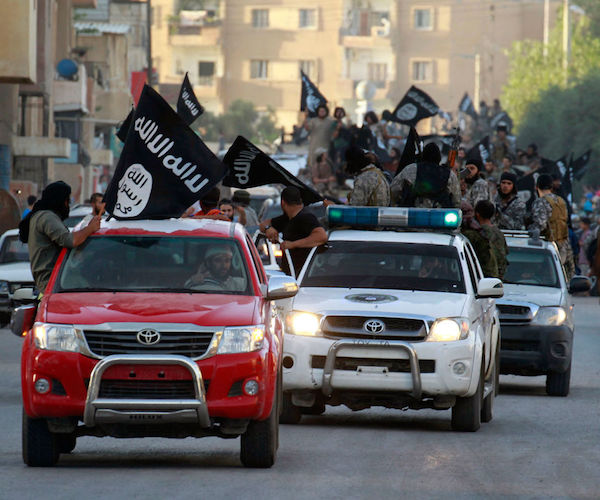 Iraqi troops are advancing in Mosul, taking new districts from Daesh. The liberation of the city is entailing high civilian losses and a humanitarian crisis, the scale of which is yet to be evaluated. The psychological consequences of Mosul’s occupation by Daesh will become apparent, as its devilish ideology has been poisoning the whole population.
Iraqi troops are advancing in Mosul, taking new districts from Daesh. The liberation of the city is entailing high civilian losses and a humanitarian crisis, the scale of which is yet to be evaluated. The psychological consequences of Mosul’s occupation by Daesh will become apparent, as its devilish ideology has been poisoning the whole population.
The city’s full liberation is a matter of days or weeks of fierce battles. Mosul is an important milestone in defeating Daesh on the ground, with Raqqa its last bastion. The recent meeting of US, Russian and Turkish military chiefs ahead of the Raqqa operation promises full-scale coordination of their forces.
But Daesh will not surrender easily, and even as it loses territory and strongholds, its ideology will not vanish under bombs and shelling. Raqqa is depicted as a decisive battle against terrorism and extremism, but is that really the case? No doubt the fall of Raqqa is a crucial step in defeating Daesh as a state-like structure, but what about its ideology?
With the elimination of Osama Bin Laden, the international community, led by the US, celebrated a decisive victory over “Islamic” terrorism. But terrorism is like a Lernaean Hydra, a many-headed serpent in Greek mythology: For every head chopped off, it regrows a couple of new ones. To the huge disappointment of the international community, eliminating a concrete symbol of the phenomenon does not eliminate the phenomenon itself.
It is much easier to eradicate a symbol than fight the phenomenon, especially when it comes to ideology. A symbol is used by geopolitical powers as a self-promotion instrument, first to increase the perception of their importance in fighting this symbol, then after its eradication, to seize a PR opportunity and consolidate their positions as righteous fighters against evil. Thus, this fight turns into a show, without an in-depth or far-reaching strategy.
The core of the phenomenon of Daesh, Al-Qaeda and other terrorist groups lays far beyond their leaders, flags and territorial gains. They represent vicious facets of the same current, mutilating religion to serve the purely political goals of certain people and groups. The spread of extremist ideology relies on four i’s: Ignorance, injustice, interventionism and impotence. Only tackling them will enable the complete eradication of radical ideology.
Terrorism is like a many-headed serpent in Greek mythology: For every head chopped off, it regrows a couple of new ones. To the huge disappointment of the international community, eliminating a concrete symbol of the phenomenon does not eliminate the phenomenon itself.
Maria Dubovikova
Ignorance is the main assistant of the spread of extremist ideology. Ironically, the same ignorance nourishes Islamophobia worldwide, which assists the spread of extremism. It is a vicious circle, helping recruiters in Muslim communities that live in non-Muslim countries.
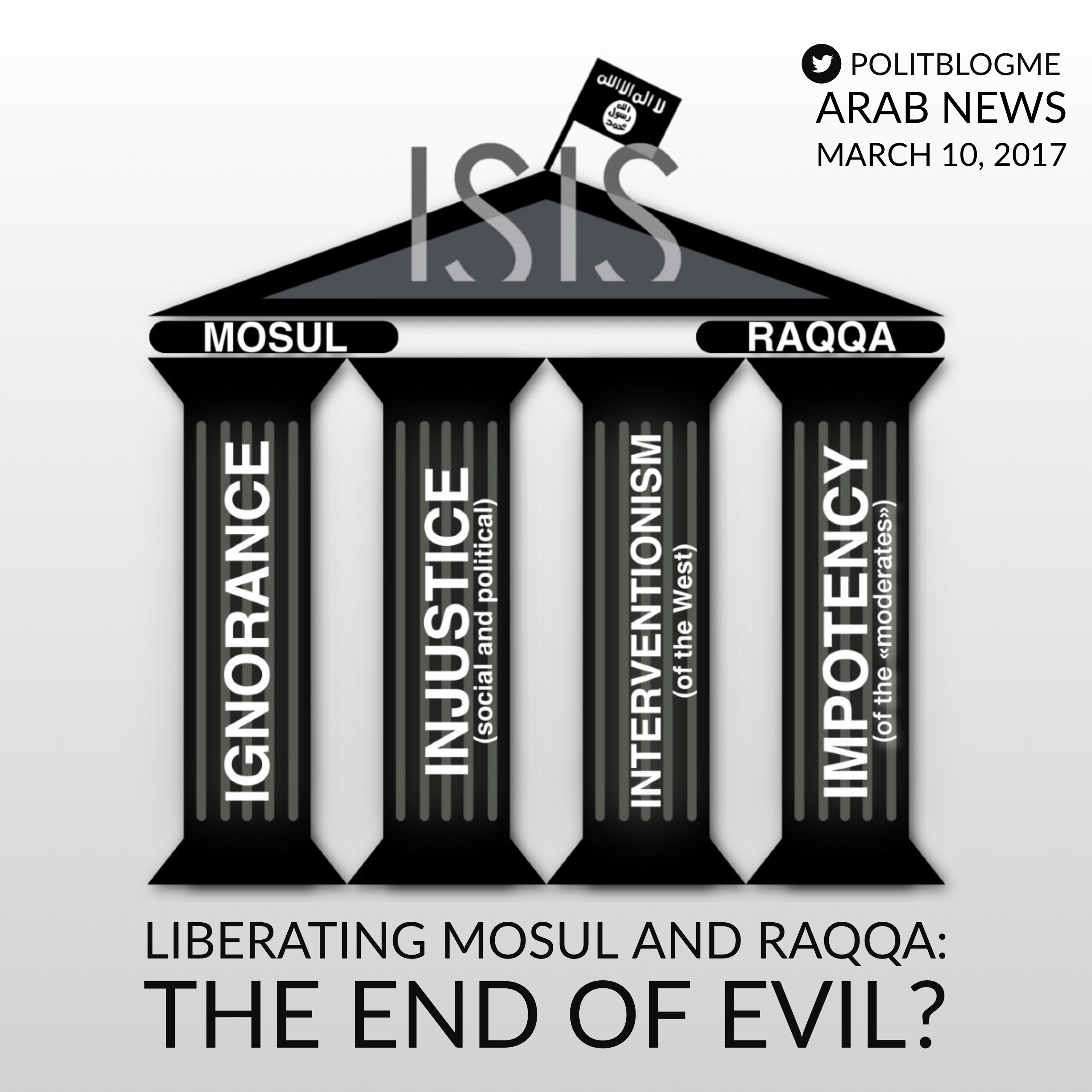 Injustice — political, social and so on — is used by recruiters, as it creates fertile soil for the spread of extremist ideology. Injustice refers not only to Muslim countries, but to the whole world. It occurs not just in authoritarian regimes and dictatorships, but also in democracies. The Arab world has good prospects of minimizing social and political injustice via sustainable development of civil society, but prospects for the West are far less positive.
Injustice — political, social and so on — is used by recruiters, as it creates fertile soil for the spread of extremist ideology. Injustice refers not only to Muslim countries, but to the whole world. It occurs not just in authoritarian regimes and dictatorships, but also in democracies. The Arab world has good prospects of minimizing social and political injustice via sustainable development of civil society, but prospects for the West are far less positive.
Western interventionism and policies toward the Muslim world are another serious factor fueling extremism. It is becoming a far more serious issue as the Arab world is chosen as a battlefield for geopolitical and sectarian clashes. As such, Western interventionism is a sustainable source of the very ideology it is officially fighting to eradicate.
The helplessness of some moderate clerics is another important factor. They appear unable to adequately withstand extremist propaganda. They are inactive and passive compared to extremists. They hardly use modern technology or the Internet to deliver messages of peace to their congregations and the world, leaving this space for extremists and their messages of war. They lack adequate contact with the youth, unlike terrorist recruiters, who are brilliant psychologists.
These pillars of extremism must be tackled after liberating Mosul and Raqqa. They are responsible for spreading extremist ideology, brainwashing people and gaining new followers. No PR or self-promotion can be made fighting these pillars. Eliminating them takes time and enormous effort, the results of which cannot be privatized by certain players.
The key to eradicating “Islamic” terrorism is also found in two words starting with the letter “i”: Islam and integrity. Islam means peace, which is the only format in which it should be spread and cultivated. The integrity of the Muslim world will thwart extremists. United Arab and Muslim worlds can finally take their fate into their own, proper hands, and claim equality and respect on the world stage, preventing all external attempts to intervene and impose.
Initially published in Arab News: http://www.arabnews.com/node/1066026
Подробнее ...
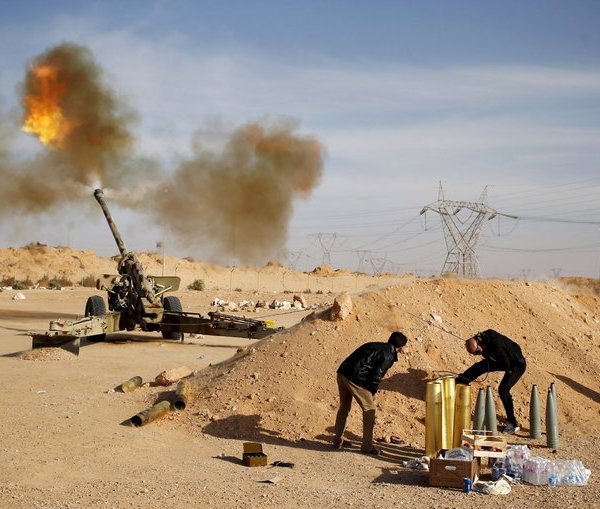 The head of Libya’s United Nations-backed government, Fayez al-Sarraj, undertook an official visit to Moscow to meet with top Russian diplomats and officials March 2-3. Russia has been stepping up efforts in Libya, which seems baffling outside the wide regional context. There is a popular opinion that Russian foreign policy, including planning in the Middle East, may sometimes be tactically impeccable but lacks strategic thinking. Some believe that unpredictability has been a hallmark of the Kremlin's foreign policy.
The head of Libya’s United Nations-backed government, Fayez al-Sarraj, undertook an official visit to Moscow to meet with top Russian diplomats and officials March 2-3. Russia has been stepping up efforts in Libya, which seems baffling outside the wide regional context. There is a popular opinion that Russian foreign policy, including planning in the Middle East, may sometimes be tactically impeccable but lacks strategic thinking. Some believe that unpredictability has been a hallmark of the Kremlin's foreign policy.
Russia’s revived interest in the Middle East goes back to Vladimir Putin’s second presidential term (2004-2008), and for a long while the authorities have focused on economic development and the need for most diversified economic ties. Their attitude has been typified by blunt pragmatism.
The well-known discord in 2011 between Dmitry Medvedev, who was then president, and Putin, who was then prime minister, over UN Security Council Resolution 1973 on Libya may also be illustrative of Russia's pragmatic stance. Russia then abstained from the vote in the Security Council, thus avoiding the image of being the dictator's benefactor and of being engaged in the conflict. At the same time, Putin called the Western policy "a new crusade" while referring to US damage inflicted on Iraq, which was consistent with the assessments that pervaded Russian society.
Neither the Kremlin reshuffle nor the Arab Spring drove Russia to refrain from its reserved pragmatism. Even the 2012-13 rule in Egypt of Mohammed Morsi of the Muslim Brotherhood, an organization declared extremist in Russia, did not stand in the way of stronger bilateral ties, even at the top level.
Following the notorious events in Ukraine, which led to a further escalation of tensions with the West, politics and security began to prevail over the economy for Moscow. Still, it failed to devise any clear foreign policy strategy except its own “pivot to the East.” Even the start of the military operation in Syria in September 2015 did not clarify whether Moscow aspires to replace the United States as a new “Middle East hegemon” or just uses the region in its contest with Washington. It was a head-scratcher.
The missing strategy seems to be a conscious choice of the ruling political elite rather than a sign of its confusion. Postmodernity is characterized by the absence of a reliable strategy. The United States and Europe's numerous failures in the Middle East testify to the fact, while the ill-fated, futile and disastrous Libyan venture in 2011 is its graphic illustration.
Therefore, the abolition of strategic objectives requires a new analysis of the values and principles of world politics and Russia's place in the world.
Since the 1999 NATO bombing of Yugoslavia, the Russian political establishment has strongly distrusted the West, as the latter has been manipulating human values to its advantage. The mistrust along with the elite's idiosyncrasy to any ideology that was bred in the late Soviet era has conjured up an image of a profoundly cynical capitalist world.
However, the ensuing confrontation with the West, whose leaders turned their back on Russia, and the need to identify Russia as an alternative project rather than part of the West have led to deliberations over world politics premised on Russian historical experience. The approach of these deliberations seems to be based on seven principles: Security prevails over development; only stability can provide both security and development as revolutions are always destructive; stability is based on strong state institutions; institutions cannot be imposed from outside, socio-political engineering is inefficient; only a strong sovereign state can deliver security and development; unilateral steps on the world stage are destructive; and international law is the only means of creating a sustainable world order.
Looked at in this light, Russia is largely pursuing national security interests in the Middle East. Meanwhile, the events in 2015-17 showed that steps driven by the need to ensure security could produce new interests, with a new stable regional system of international relations being the major one.
This allows for an understanding of both the causes of Russia’s stepped-up efforts to deal with Libya and Moscow’s approaches to settling the country’s conflict.
Even though Russia’s existential interests are not at stake in Libya, one can emphasize four contexts providing rationales for its moves.
First, the list includes Moscow’s general line aimed at stabilizing the region. Not only does the policy contribute to Russia’s security, but it also throws into sharp relief its effective and attractive methods.
Second, add to the mixture Russian-Egyptian relations, which require specific measures to transform mutual affinity into a solid alliance, with Egypt’s regional position being strengthened. A weak Egypt, Moscow argues, will further destabilize the Middle East, as historical, geographical and demographic forces have predetermined the country’s key role. Assisting Egypt in handling Libya constitutes a means of bolstering Cairo’s regime.
Third, the agenda encompasses Russia’s Mediterranean policy and the country’s ties with European Union member states. According to an informed source, Europe has but once given signals to the Kremlin that the refugee-affected countries are seeking Russia’s active involvement in Libya’s affairs, which in the long run could improve relations between Moscow and Brussels.
At the same time, a friendly or loyal regime in Libya could emerge as part of the Russia-dominated axis of Damascus, Cairo and Tripoli.
Fourth, economic interests of Russian businesses striving to gain a foothold in new markets must also be considered.
All these factors may account for Moscow’s interest in Libya rather than its marked bias in favor of Gen. Khalifa Hifter. Given the particular episodes in the commander’s biography, which should instill mistrust among Russia’s policymakers, their sympathetic attitude toward Hifter is especially awkward.
Yury Barmin, an analyst of Russia’s foreign policy in the Middle East, suggests the Kremlin perceives Hifter as a new Col. Moammar Gadhafi. Although Barmin may have a point, the two leaders and the surrounding contexts are strikingly different. Gadhafi has never had to forcibly unite the country, with his political system originally resting upon the then most popular ideology in the Arab world. Gadhafi, along with his young supporters, articulated the interests of the most modernized groups of generally traditional society. (Now it is much more modernized.) This does not play into Hifter’s hands.
Nevertheless, the Libyan marshal may have been chosen as an ally by Cairo rather than Moscow. In this view, it is the dialogue with the former that represents the latter’s paramount interest. Hifter’s and Egyptian President Abdel Fattah al-Sisi’s ideological affinity, which concentrates on confronting the Muslim Brotherhood, makes them even more attractive to Moscow.
Finally, the Kremlin’s willingness to act as appropriate, thus refusing to impose its own will, gives another explanation for its focus on Hifter. Indeed, the marshal has objectively proved to be Libya’s most powerful figure. Amid the chaos, his personified power makes him more appealing, with individual groups being unreliable and weak. Fierce opposition to Hifter and prioritizing the Government of National Accord mean standing in the way of natural processes and fueling the ongoing war. It is the West’s ideologically driven policies and its reluctance to recognize the imperfect world that cause Moscow’s considerable irritation.
However, this does not imply that Russia intends to ignore other Libyan actors. Amid the lack of developed institutions and overmilitarized society, the establishment of a resilient system entails a necessary broad consensus. Given the Syrian experience and Moscow’s general approaches, one can assume that as a mediator in Libya, the Kremlin will follow a regional track of the conflict resolution involving Egypt, Tunisia and Algeria as the key players.
Initially published by Al Monitor: http://www.al-monitor.com/pulse/originals/2017/03/russia-libya-sarraj-foreign-policy-putin-hifter.html#ixzz4aa9Ts6qf
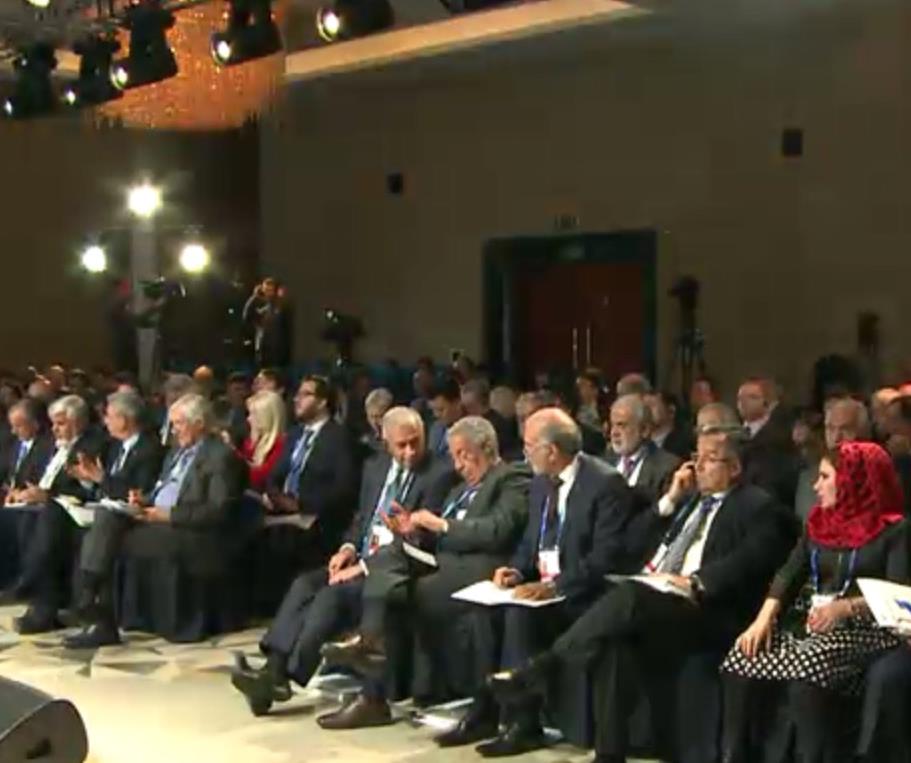 Prominent experts and high-level officials from Russia and all around the world have been trying to find the answer to the question: “The Middle East: When will tomorrow come?”
Prominent experts and high-level officials from Russia and all around the world have been trying to find the answer to the question: “The Middle East: When will tomorrow come?”
Russia’s annual Valdai Discussion Club — a prominent, marathon-like two-day dialogue on the Middle East — has just finished. The meeting, held in Moscow, united top officials and experts from Russia and all over the world, with vivid discussions on the burning issues involving the Middle East.
The Valdai format has once again proved to be an open platform for the free sharing of ideas, views and concerns. And what is more important is that it has proved that Iranians and Saudis, Palestinians and Israelis, and Turks and Kurds can be present in one hall, despite different religious beliefs, political views and affiliations. It shows they are able to talk, listen to each other, speak, peacefully argue, find common ground — and even joke and laugh.
The key topics on the table were Syria and Iraq, Yemen and Libya, the Arab-Israeli conflict, Iran and its place in regional affairs, and separately the issue of the Saudi-Iranian confrontation. They are the key issues that are forming the general regional environment and which have a serious impact on the global agenda and stability.
All these topics were approached from both regional and global perspectives, thus involving global players from the US, Russia, EU and even India and China.
The dialogue revealed several major characteristics of the current historical momentum.
First of all, we are living in a critical moment in history, with the emergence of a new world, the true nature of which is still not clear. Russia’s role in regional affairs is evolving, and is being re-evaluated with more constructive analysis, understanding and sane criticism, instead of a reaction of panic and fear.
Raghida Dergham — the founder and executive chairman of the Beirut Institute, columnist and New York bureau chief at Al-Hayat, and whose columns appear in Arab News — talked about the importance of Russia-US cooperation for the region. She also raised Iran’s role and ambitions in the region, notably in Syria.
Under the pressure of severe challenges the region is facing, there are signs of an attempt to put aside existing differences and make steps toward cooperation, facing up to the threats, and building the future the region hopes for.
At least that is what was clearly heard in the speeches of Amr Moussa, former secretary-general of the Arab League, Nabil Fahmy, former Egyptian foreign minister, and Ebtesam Al-Ketbi, founder and president of the Emirates Policy Center.
Fahmy has assumed that the majority of the regional challenges cannot be faced without the participation of the global players. But he cautioned that this participation and assistance should be constructive, not deepening the schisms with geopolitical games.
A reconciliation in a region facing major threats could be led by Egypt, traditionally taking the cornerstone role of stabilizing player, despite the severe internal crisis it is still going though following the shock of two revolutions in three years.
This call for regional reconciliation and cooperation is coming primarily from societies that are tired of confrontation and conflict.
Even the guests from Iran pointed out that there is a strong growing middle class in Iran, which is looking forward to modernization and a reconsideration of the policies toward the region and global players. Thus Iranian speakers gave hope for a change of Iranian policies in the foreseeable future. People are looking for peace, not for confrontation.
The last panel in the conference was entitled “The Future of the Middle East: In search of a common dream.” Politically the dreams of the governments are dividing, not uniting the sides. And from this perspective future prospects are quite gloomy, as long as the aspiration for dominance and power that prevails in politics continues, leading to more wars and confrontation. The dream of one government often eliminates the dream of another.
John Bell, director of the Middle East and Mediterranean Program at the Toledo International Center for Peace in Madrid, said we appear to be in a situation where there are a lot of dreams, but an absence of positive reality; some governments are manipulating Middle Eastern societies. But these same societies, political manipulation aside, are united by the same dreams of peace and prosperity.
This brings a crucial need for the emergence of civil societies that are able to form and determine the policies of governments. And the key to this lies in education, including training to resist propaganda and manipulation and teach critical thinking.
Thus, it is only through the perspective of such societies that the Middle East has a chance to pursue the common dream of peace. Governments stay and governments go. It is time to build bridges between the people.
Article published in Arab News
http://www.arabnews.com/node/1061826
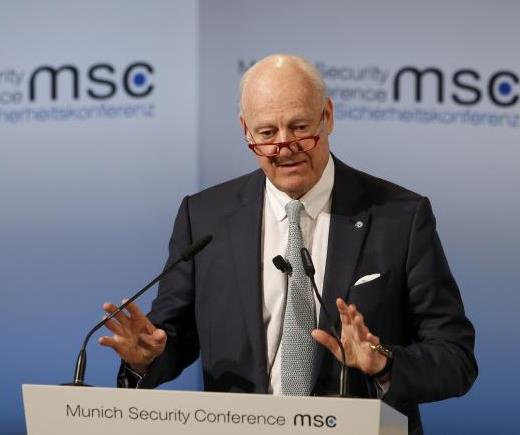 There is no longer unhealthy interest and agitation around the Geneva talks. Speculation and media manipulation have significantly decreased, enabling negotiators to concentrate more on negotiations than on popping cameras. No one expects a breakthrough from Geneva IV, but then it depends what is considered a breakthrough.
There is no longer unhealthy interest and agitation around the Geneva talks. Speculation and media manipulation have significantly decreased, enabling negotiators to concentrate more on negotiations than on popping cameras. No one expects a breakthrough from Geneva IV, but then it depends what is considered a breakthrough.
It is significant that for the first time in almost six years of bloody and devastating war, the government and inclusive opposition are ready for direct talks. Even though UN envoy Staffan de Mistura says he sees little common ground between the sides, the fact that they have matured to the point of overcoming mutual hatred and talking directly is promising.
Another positive sign is that thanks to the efforts of many players — including Russia, Turkey and Saudi Arabia — the opposition has reached the fourth round of talks more united than ever, and able to articulate its positions and demands without stalling each time due to internecine debates and disputes. Despite having little common ground, the sides seem keener on ending the war, concentrating on a political transition and fighting extremists.
Even Turkey, which had staunchly supported the opposition forces from the start of the conflict, has softened its position on the Syrian regime, admitting it is no longer realistic to insist on a solution that excludes President Bashar Assad. The fact that tough preconditions from the opposition side have disappeared from their political statements is also an important and promising sign. Removing a military solution to the conflict is a true breakthrough.
Much was done to make these achievements possible by Turkey and Russia after their own reconciliation. The Astana format, which served to back up the Geneva process, harmonized negotiations and enabled the possibility of direct talks.
The main problem is the ground forces that are not interested in a settlement of the conflict. These radicals and extremists are profiting from it. Jabhat Fateh Al-Sham, formerly Al-Nusra Front, is a major headache. Its infiltration of opposition ranks hampered Russia-US talks on the separation of radical groups and moderate opposition in east Aleppo. This paralysis led to rebel defeat in east Aleppo, which was a game changer in the conflict, at a high cost in human lives that could have been avoided.
Peace in Syria is not in the interests of extremist groups. For Daesh and other terrorists, the longer the conflict, the easier it is to radicalize and recruit. These groups could not survive in peacetime.
At the Munich Security Conference, De Mistura outlined the challenges the political process is facing, and provocations from parties that are playing spoiler. Players such as Russia and Turkey, which stand out as guarantors of the peace process, are working to elaborate mechanisms to minimize the impact of provocations and maintain the cease-fire, which is indispensable for any political process.
It is high time for Syrians to come up with a political settlement to end the violence, chemical attacks, atrocities and suffering. It is high time for the international community to join forces to help them do so.
Geneva IV will not result in breakthroughs that will immediately lead to a political process, but it could pave the way for such agreements. The political maturity of both sides gives hope for further involvement of civil society in negotiations, which will facilitate talks and an indispensable political transition.
International players should stop playing geopolitical games on the bones of innocent Syrians. The longer a political settlement is questioned by negotiating sides, and the longer the Assad regime listens more to Tehran than to Moscow, the stronger terrorist cells will become, and the harder it will be for the international community to fight them. The future of Syria and the world is at stake.
However, the start of a political process is no guarantee of peace. The devil is in the details, and disputes over many issues can lead to the continuation of the conflict in different forms. But no matter the risks and challenges, it is time for all Syrians to work together and remember that they are one nation, and that the key to peace lies only in their hands.
Article published in Arab News:
http://www.arabnews.com/node/1059851
Why Moscow now sees value in Syrian local councils
Автор Anton Mardasov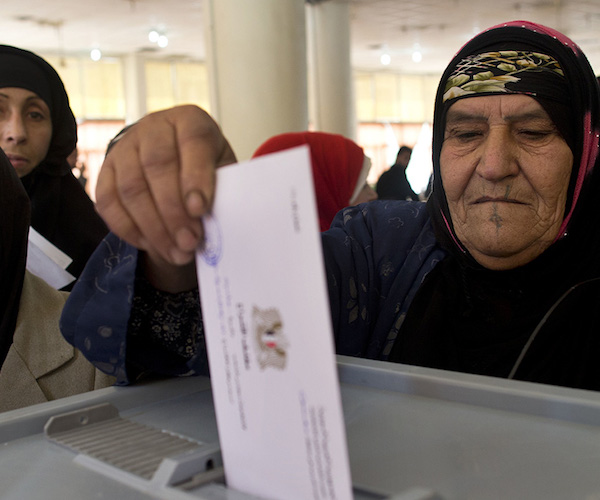 The major political slogan of the Bolshevik Party leading up to the 1917 Great October Socialist Revolution and the uprising itself, “All Power to the Soviets!” is now relevant to Syria.
The major political slogan of the Bolshevik Party leading up to the 1917 Great October Socialist Revolution and the uprising itself, “All Power to the Soviets!” is now relevant to Syria.
Russia has come to realize that some opponents of the Syrian regime are actually moderates rather than terrorists and that a move to empower local governments could help resolve the conflict.
The long-lasting civil war in Syria killed centralized government stone dead and caused a de facto territorial fragmentation. Although international players are currently voicing “commitment to Syria’s sovereignty, unity and territorial integrity,” it also is a fact that alternative forms of civic self-government, namely local councils, have held sway in rebel-controlled districts for some time now.
According to Al-Monitor’s sources close to the National Coalition for Syrian Revolution and Opposition Forces, the country’s local councils numbered 404 after the fall of eastern Aleppo to the forces of President Bashar al-Assad. Self-government is in the offing in Turkey’s buffer zone in northern Aleppo. Thus, one can argue that the self-organizing revolutionary movement suggested by Syrian activist Omar Aziz at the onset of the uprising in 2011 has materialized.
Until recently, the Kremlin refused to acknowledge the civil war in Syria, portraying the conflict only as Damascus’ fight against “terrorists.” Such a policy prevented Russian officials from objectively assessing local councils’ performance. Moreover, the issue is a real blind spot among many Russian politicians and pundits.
Indeed, on Nov. 8, Russian Foreign Ministry spokeswoman Maria Zakharova labeled councils in eastern Aleppo “self-proclaimed authorities” doing “what their external sponsors or backers told them” and playing into the hands of “the most radical illegal armed groups.” Russian Defense Ministry spokesman Maj. Gen. Igor Konashenkov said Dec. 13 that what eastern Aleppo had experienced was “indiscriminate terror,” rather than an opposition movement and local councils. Though Russia described self-government in formerly rebel-held areas of eastern Aleppo with broad strokes, one should note that despite “random terror,” Russia’s Defense Ministry was able to evacuate virtually all besieged fighters and their families to Idlib. At the same time, it is clear that notorious jihadists should have been detained and vetted.
However, the recapture of eastern Aleppo and the Defense Ministry's subsequent recognition of Syria’s moderate opposition appear to have reset Moscow’s attitude toward both rebels and “local power brokers.” In the end, Article 15 regarding the separation of power between local councils and central government was incorporated into Syria’s much-talked-about draft constitution produced by Russian experts and presented to the armed opposition at negotiations last month in Astana, Kazakhstan.
On one hand, such a step signals Moscow’s willingness to make concessions and to consent to Syria’s division into zones of influence within its existing boundaries. On the other hand, the move once again signifies the Kremlin’s inconsistency — characterized by the pretense of stability, the absence of a long-term Syria strategy and the influence of domestic policies on foreign ones.
Moscow’s analysts are united in stating that the draft constitution, including such controversial points as Kurdish autonomy and a seven-year presidential term, is merely an attempt to promote dialogue between all the parties concerned. Yet it is evident that a focus on “legalization” of local councils and their integration into the political conflict settlement represents an appropriate way to do that.
“Wholesale reforms” require much time and effort. The time vacuum and lack of visible achievements play into the hands of hard-line and terrorist groups. In this respect, supporting local government is the most effective and pragmatic way to restore peace for the locals, to address social needs and to create jobs after a lasting truce.
However, problems also arise. On one hand, the councils are trying to distance themselves from any armed groups. On the other hand, they need the assistance of outer forces. Ma'arrat al-Numan, a city in Idlib province, illustrates successful coordination between the local council, local coordination committees and the Free Syrian Army's Division 13, which is closely affiliated with the local administration. They jointly managed to force Jabhat Fatah al-Sham (formerly Jabhat al-Nusra) to withdraw from the region. Commanders of the armed groups and activists of local councils are quite close and the distinction between them is somewhat symbolic, even though the latter is charged with addressing pressing social issues rather than sustaining control over the areas.
Given this, an important question logically arises: How will Damascus take Moscow’s suggestion to decentralize power? As of now, the reaction is still unclear, as no one has publicly commented on the situation on the ground. However, the pro-government Syrian media tend to be quite skeptical about the performance of local councils. They stress that the councils fail to meet even the basic needs of the population, despite the assistance of nongovernmental organizations and funding provided by the West and the Persian Gulf states.
Meanwhile, the regime has long been playing its own game with local councils. Damascus maintains leverage in opposition-held areas, first and foremost, by demonstrating its sustained, indispensable role in providing essential public services — paying wages to teachers and money to pensioners who have not been reported as involved in opposition. At the same time, the regime has openly opposed any challenge to its monopolized areas such as providing public services and an alternative educational and health care system. Damascus launched deliberate airstrikes in the cities where local councils had been most successful and thereby had posed a substantial challenge to the regime. That was the case, for example, in Ma'arrat al-Numan, Douma and Darayya. However, in some areas, the administration has sought reconciliation with local councils for its own benefit — as it did, for instance, in Quneitra and Daraa provinces.
At the same time, since the emergence of the first local councils five years ago, the opposition has failed to agree on a model of local administration and self-government, or to vest them with political functions. As a result, with the rare exceptions of the Kabbun and Ma'arrat al-Numan assemblies, councils provide only some public services, and they do not have any administrative duties or executive or administrative powers. The idea of holding elections to provincial councils that represent various administrative layers, interact with the United Nations and other bodies and can directly conduct political reform in the long run has not been fully implemented. As of now, only eight councils of the kind have been formed in Syria.
Local councils can possibly initiate cooperation with the regime and with the Russian officers at the Center for National Reconciliation, based at the Khmeimim military base. Some sources on the ground told Al-Monitor that there are Christians in the groups who cooperate directly with the councils and among activists. After some “indoctrination,” it may prove valuable to have local councils recognized by the regime as civil structures.
Remarkably, Syrian Kurdistan’s positive experience with local councils may well be studied and used across Syria. The Kurdish Democratic Society Movement headed by the nationalist Democratic Union Party is of particular interest to those who want to establish fully autonomous, civil-military self-government structures; consider the Manbij Military Council, for example. To streamline the work of local councils and understand their role in the transition to peace, it is important to make good use of the experience being gained during the civil war.
Initially published by Al Monitor: http://www.al-monitor.com/pulse/originals/2017/02/russia-syria-value-local-councils-shift-damascus.html#ixzz4ZLdLvOqR











